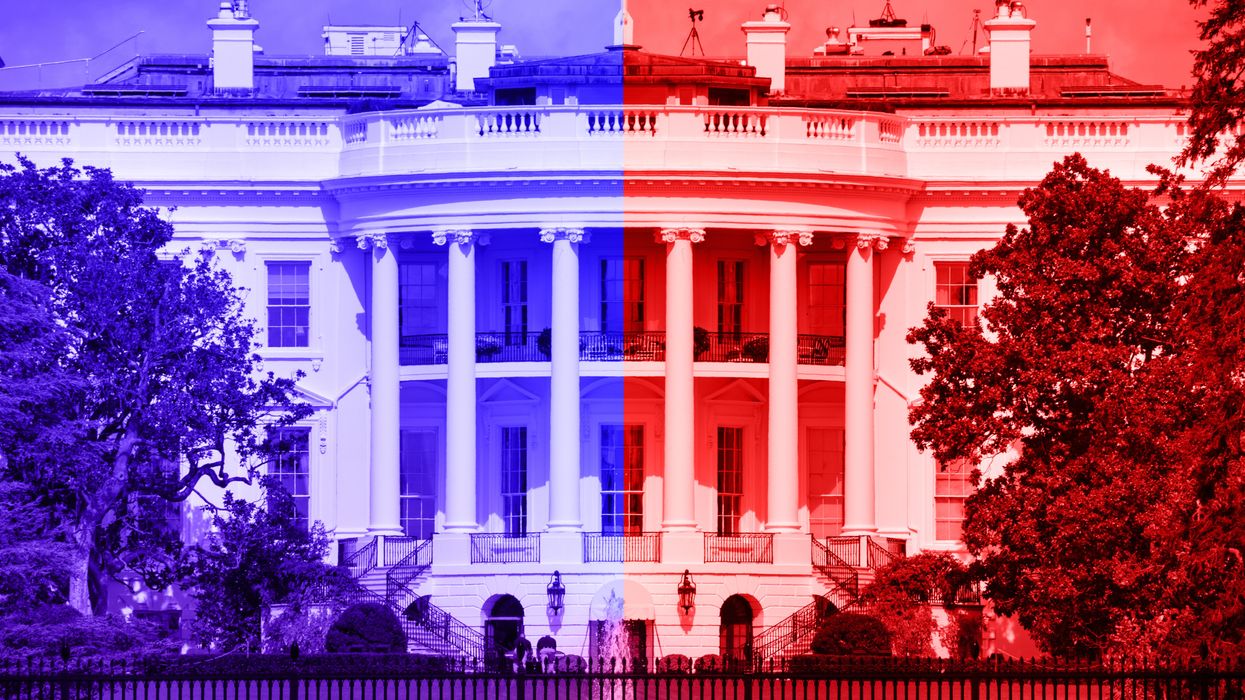Hsu focuses on awareness through music in her Conscious Listening classes and residencies. Hsu is also a public voices fellow with The Op Ed Project.
This presidential election is one of the most high stakes and divisive races any of us have experienced. As we wait anxiously to see how swing state voters will decide the election for the rest of us, many feel powerless and irrelevant.
The frightening reality is that we have reached a tipping point where distrust and disconnection have become normalized. We no longer seem to have common values or the civility to disagree respectfully. And when we lose the ability to connect, reason disappears. We urgently need to reclaim the power to connect with ourselves and with others.
As a Juilliard-trained pianist and educator specializing in listening skills, as an immigrant working with partners and clients from multiple cultures, and as an arts entrepreneur seeking innovative opportunities to engage, I believe it is not too late to weave a stronger cultural fabric — if we all participate.
My work in music is often misunderstood to be the work of playing notes quickly and accurately. However, it is not the individual notes but the moment-to-moment listening and consequent decisions that create the spirit of the piece.
Most of my time is spent listening for what is missing. Building connections between the different elements, imagining how the harmony and the dynamic contour can better support each other, teasing out what is primary and what is secondary information, creating a tensegrity of multidimensional layers.
Whatever happens in November, after the election we will still have another war to fight. And that will be between our own cynicism — the curse we have created for ourselves — and a conscious decision to disarm and reconnect tense relationships. When the opposition goads us, it is hard to stay dignified and not retaliate. But creating unity and reconciliation demands we give up something.
When we listen to the opposition, we are not condoning irresponsible behavior, forfeiting our right to speak our own perspective or throwing blame around. We are doing our part to engage and create the opportunity for a pathway forward.
While we can’t change the minds of those entrenched in xenophobia or personal wealth or conspiracy theories, we can creatively improve the cultural conditions that prime our brains to connect with each other. If we each level up our listening strategies, our collective impact adds up over time. Here are four tactics I use as a teacher, to foster engagement.
1. Notice and applaud the courage to take emotional risks. Human beings, like live music, require a willing audience in order to reveal their inner being. Many people who might normally withdraw to avoid potential conflict will open up to a listening ear.
A recent study in the International Journal of Education Social Studies and Management shows how a teacher’s interpersonal communication style directly impacts student behavior. When a teacher shows appreciation to the student sharing a perspective, the student responds with more enthusiasm to learn. When students see that I am invested in their well-being, they are more likely to share what they are actually thinking and feeling. And I get an extra thrill when I see a performer who would risk an extra moment of silence to completely connect with the audience in the moment, rather than safely execute a rhythm to avoid reproach.
2. Ask questions. Approach conversations as multilayered and open-ended. For instance, you might ask, “I noticed that he frowned when you mentioned his mother. Did you also notice it?” Situations, like music, have many elements such as main theme, harmonic tone, pacing, dynamic contour, etc.
By engaging through multiple dimensions, we can loosen up people’s grip on the idea that any single view is a complete reality and open them up to wonder, “Why? Why not? What if?” Reaching a mutual understanding that we are all fallible results in more willingness to listen and not judge.
3. Connect the dots between personal morals and systemic issues. Moral reframing is using personal morals to open up a conversation about a larger issue a person may ordinarily be ideologically or politically opposed to. Regardless of a political party’s stance on universal health care, we can agree that having healthy workers who are not devastated by unexpected health care bills is essential to a stable economy.
A pretty chord by itself isn’t meaningful until it finds a place in a string of chords to create a harmonic progression. In life, too, we need a mindset to connect personal values with current issues, and individual needs with collective ones.
4. Observe and adapt. If political issues are too triggering, we can find other points of engagement. If we can’t directly talk about candidates, we can sidestep to related issues like how to get young voters involved and how to make voting easier.
To be sure, this high quality of intentional engagement is not easy and we will do it imperfectly. I am among the busy people who failed to notice right-wing radio hosts sowing the seeds of distrust with no oversight. I am among the intimidated people who didn’t fight back when progressive friends condescendingly condemned belief in the divine as a mental crutch. But I am still in the fight for a better future.
Whatever the election outcome, our underlying problem of disconnection will remain. Until we reach a healthy tipping point back into discourse, there will always be another threat waiting in the wings to hijack the country. Let’s resist these forces of destruction by evolving our collective listening to find cohesion, connection and creativity, just as we do when we listen to beautiful music.



















Marco Rubio is the only adult left in the room